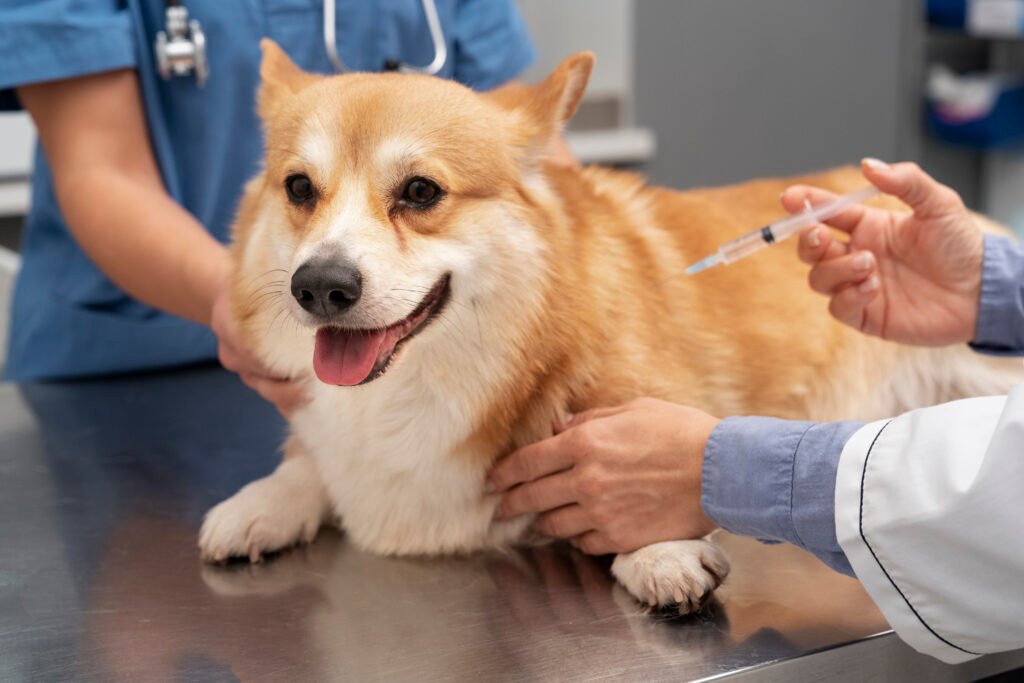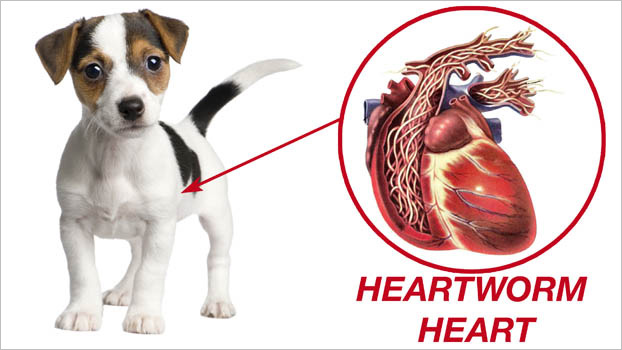
If your dog recently returned from a kennel, boarding facility, or dog park and has started making a persistent coughing sound—almost like something is stuck in their throat—it may be kennel cough in dog. This condition, also known as canine infectious tracheobronchitis, is a highly contagious respiratory disease. While it often sounds alarming, most dogs recover with proper care and preventive measures.
In this article, we’ll explain the kennel cough symptoms, causes, treatment options, and how to prevent it from affecting your furry friend.
What is Kennel Cough?
Kennel cough is an infection that causes inflammation in a dog’s trachea (windpipe) and bronchi (airways). It is comparable to the common cold in humans but is more infectious among dogs.
The condition spreads quickly in crowded or poorly ventilated spaces such as kennels, shelters, dog parks, or during travel.
Kennel Cough Symptoms
The most common symptom of kennel cough in dog is a persistent, forceful cough that may sound like a “goose honk.” Other noticeable kennel cough symptoms include:
Persistent, dry hacking cough
Production of white foamy mucus after coughing
Sneezing and nasal discharge
Watery or cloudy eye discharge
Occasional lethargy or reduced appetite (less common)
In most cases, dogs remain alert and active despite the cough. However, young puppies, older dogs, and those with weak immune systems may develop severe complications.
Causes of Kennel Cough in Dogs
Kennel cough is not caused by a single agent but rather a combination of bacteria and viruses.
The most common culprit is Bordetella bronchiseptica, often accompanied by viruses such as:
Canine adenovirus
Canine parainfluenza virus
Canine herpesvirus
Mycoplasma
Canine reovirus
Dogs contract kennel cough by inhaling infected respiratory droplets, direct contact (like nose-to-nose greetings), or contaminated surfaces (water bowls, toys, bedding).
How Vets Diagnose Kennel Cough
A veterinarian usually diagnoses kennel cough based on medical history and clinical signs. For example, if a dog develops a cough after staying in a kennel but otherwise looks healthy, suspicion is high.
During examination, the vet may:
Apply light pressure to the trachea to trigger a cough
Listen to the lungs and heart
Recommend X-rays if pneumonia is suspected
Treatment for Kennel Cough in Dogs
Most healthy dogs recover within 2–3 weeks without major treatment. However, medications can speed up recovery and reduce discomfort.
Common treatment options include:
Antibiotics (like doxycycline) to target Bordetella bacteria
Cough suppressants to ease persistent coughing
Bronchodilators to open airways
Anti-inflammatories to soothe throat irritation
In severe cases with pneumonia, dogs may need hospitalization, IV fluids, oxygen therapy, and stronger medications.
Home Remedies to Support Recovery
If your vet confirms kennel cough, you can also provide home care to make recovery faster and easier:
Use a humidifier or steam therapy to moisten airways.
Add a little honey in warm water (½ teaspoon up to 3 times daily).
Clean eye and nasal discharge with a warm damp cloth.
Ensure plenty of rest and reduced exercise.
Use a harness instead of a collar to prevent throat strain.
Avoid irritants like smoke, dust, and strong cleaners.
Prevention of Kennel Cough in Dogs
Prevention is always better than treatment. Key steps include:
Vaccination: Bordetella vaccines are available as injections, nasal sprays, and oral doses. Many boarding facilities require proof of vaccination.
Limit exposure: Avoid crowded spaces if there’s an outbreak.
Boost immunity: Keep your dog’s overall health strong with proper diet, exercise, and regular vet checkups.
When to See a Vet Immediately
Contact your vet urgently if your dog develops:
Rapid or labored breathing
Severe lethargy
Loss of appetite
Persistent cough beyond 3 weeks
These may indicate pneumonia or another serious condition.
Conclusion
Kennel cough in dog may sound alarming, but with early recognition, supportive care, and preventive measures, most dogs recover without complications. Understanding the common kennel cough symptoms, causes, and treatments will help you protect your pet and prevent future infections.
If your dog develops a persistent cough, don’t ignore it—consult your veterinarian to rule out more serious illnesses such as canine influenza, distemper, or heart disease.
Pravin is a tech enthusiast and Salesforce developer with deep expertise in AI, mobile gadgets, coding, and automotive technology. At Thoughtsverser, he shares practical insights and research-driven content on the latest tech and innovations shaping our world.
- Pravin Rhttps://thoughtsverse.com/author/pravin321/
- Pravin Rhttps://thoughtsverse.com/author/pravin321/
- Pravin Rhttps://thoughtsverse.com/author/pravin321/
- Pravin Rhttps://thoughtsverse.com/author/pravin321/



